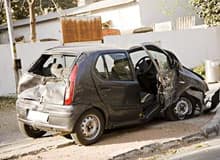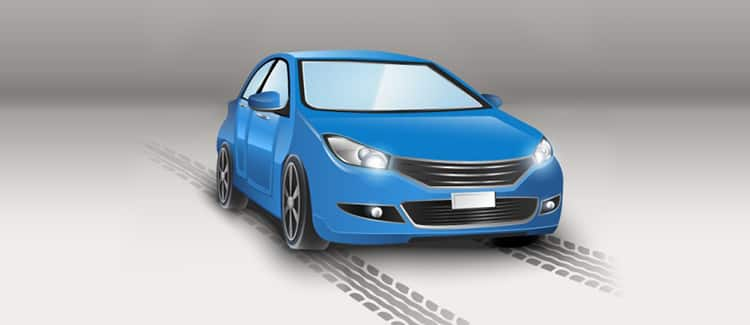-
Renew policy in 2 minutes*
-
21+ Insurers to choose
-
1.2Cr+ Vehicles Insured

-
Home

-
Motor Insurance

-
Car Insurance

-
Articles - CI

- 5 Things to Make the Best Out of Your Car Insurance Plan
5 Things to Make the Best Out of Your Car Insurance Plan
To buy a car we tend to plan and research so much about the model, price, engine, interior, tires, and everything that seems important. But people usually miss out on the insurance part and underestimate its importance. It is vital for you as a car buyer to consider car insurance and make the best out of it for future financial security.
Following are the 5 major factors that you must consider before buying car insurance online.
1. Choose a Policy Based On Your Needs
Car insurance comes with two plan options - one is third-party motor insurance and the second is comprehensive motor insurance. As per the motor vehicle act 1988, the third-party car insurance plan is mandatory for every vehicle owner in India.
While a third-party insurance policy only covers your liability towards a third-party person or vehicle due to accidental damage. A Comprehensive car insurance plan offers you coverage for your own loss/damage as well as third-party liability. With that dual coverage benefit, it comes with extra benefits, which you can avail by adding riders to your base plan.
It is advisable to consider the needs and requirements before buying car insurance plan. If you want to opt for only third-party liability coverage, you're good to go for a third-party plan. If you want to protect your car as well as want cover for third-party liability, you must buy a comprehensive car insurance plan.
2. Carefully choose the Deductibles
A deductible is the percentage of amount that the insured agrees to pay from his pocket at the time of claim settlement or repair works. It refers to the amount that pertains to the portion of damages that are not covered by the insurer.
A vehicle insurance policy comes with compulsory and voluntary deductibles options. At the time of claim or damage repair, you are required to pay the percentage of deductibles chosen by you at the time of policy purchase or renewal. Under the compulsory deductible option, the insurer decides this percentage of the claim amount that you need to pay from your own pocket.
A higher deductible means a lower claim amount and is fruitful for safe drivers. It is advisable to choose the deductibles as per your claim paying ability.
3. Correct Insured Declared Value
Insured Declared Value or IDV is an important deciding factor for your car insurance premiums. Your car's approximate current market price is what IDV is. IDV is only available with a comprehensive car insurance policy, you will not get to opt for the IDV range with third-party car insurance.
IDV range comes to the rescue when your car gets stolen or damaged beyond repair due to an accident. In such a scenario, it will be considered as a total loss and your insurer will compensate you with the approximate IDV amount that you had set at the time of policy purchase.
While purchasing the car insurance plan and make sure that the IDV is currently declared, the higher IDV value means increased premium, and lower IDV value means reduced claim amount. Do not declare wrong IDV just to save on the premium, as it will create problems at the time of car insurance claim settlement.
4. Choose Your Add-on Covers Wisely
Add-on covers are only available with a comprehensive 4-wheeler insurance plan. Almost every Motor Insurance Provider offer these add on covers: Return to invoice, Engine protection cover, No claim bonus protect, Roadside assistance cover, Zero depreciation cover, and Passenger accident cover. Each rider has a unique feature and benefits that you can avail. You have an option to buy these add-on covers by paying a little extra premium.
Since every add-on cover comes with unique features and benefits it is important for you to determine which one suits your needs and requirements the best.
For instance, if you can anticipate that there will be fewer chances of raising a claim then you shouldn't buy NCB cover with your car insurance plan.
5. Retain Your NCB by Timely Renewing Your Policy
NCB refers to the No Claim Bonus; it is a discount which you get on your plan when you don't raise a claim in one policy year.
Your motor insurance policy needs renewal every year. Although general insurance companies provide car insurance plans from 1-year term to longer-policy terms, it is advisable to opt for a longer policy term. It is so because then you will be able to avail the benefit of your insurance plan for a longer duration with the hassle of renewing it every year.
It is imperative to keep your car insurance policy active if you have chosen a policy term of more than 1 year. If you will not renew the policy, it will get lapsed and will be of no use. Over that, you might lose the no claim bonus accumulated over the years.
You must know that the NCB amount can be as high as 50% for 5 consecutive claim-free years. To retain the NCB, you must renew your policy on time.
The Final Word
It is imperative to factor in the above-mentioned points while buying a four-wheeler insurance policy to make the best out of your plan. If you have chosen, the comprehensive car insurance policy then you have already enhanced the policy coverage for your insured vehicle. Also, it is advisable to go through the terms and conditions of your policy document to plan your insurance properly.
Find similar car insurance quotes by body type
































Explore More Under Car Insurance
- Motor Insurance
- Car Insurance
- Zero Dep Car Insurance
- Compare Car Insurance
- Car Insurance Calculator
- Third Party Car Insurance
- Comprehensive Car Insurance
- IDV Calculator
- Car Insurance Companies
- Own Damage Car Insurance
- Electric Car Insurance
- Pay As You Drive Insurance
- Renew Expired Car Insurance
- Used Car Insurance
- NCB in Car Insurance


Car Insurance Articles
- Recent Article
- Popular Articles

Can I Add Personal Accident Cover Later if I...
Insurance providers allow you to add a Personal Accident (PA)
Read more
Car Insurance Renewal in India: A Complete Guide
Have you found yourself delaying (and eventually forgetting) about
Read more
New Car Insurance Guide: What to Know Before...
More than 43 lakh new vehicles were sold in India in 2024 alone
Read more
Why There's a Rising Demand for Usage‑Based Car...
With the growing number of motorists in India demanding fairer
Read more
Car Insurance for Self-Driving or Autonomous...
Autonomous or self-driving vehicles are the future, as all major
Read more
How to Get Your Duplicate Car Insurance Policy...
Losing your car insurance documents can be daunting, especially when you need them in an emergency or for a routine
Read more
How to Transfer Car Insurance Policy?
Buying a car, even second-hand, is a big decision, and often, people overlook the essential documentation involved
Read more
Get Vehicle Fitness Certificate from RTO...
A vehicle fitness certificate (FC) ensures that a motor vehicle is fit to be driven on roads. As per the Indian
Read more#Rs 2094/- per annum is the price for third-party motor insurance for private cars (non-commercial) of not more than 1000cc
*Savings are based on the comparison between the highest and the lowest premium for own damage cover (excluding add-on covers) provided by different insurance companies for the same vehicle with the same IDV and same NCB. Actual time for transaction may vary subject to additional data requirements and operational processes.
+Savings are based on the maximum discount on own damage premium as offered by our insurer partners.
##Claim Assurance Program: Pick-up and drop facility available in 1400+ select network garages. On-ground workshop team available in select workshops. Repair warranty on parts at the sole discretion of insurance companies. Dedicated Claims Manager. 24x7 Claim Assistance.






















